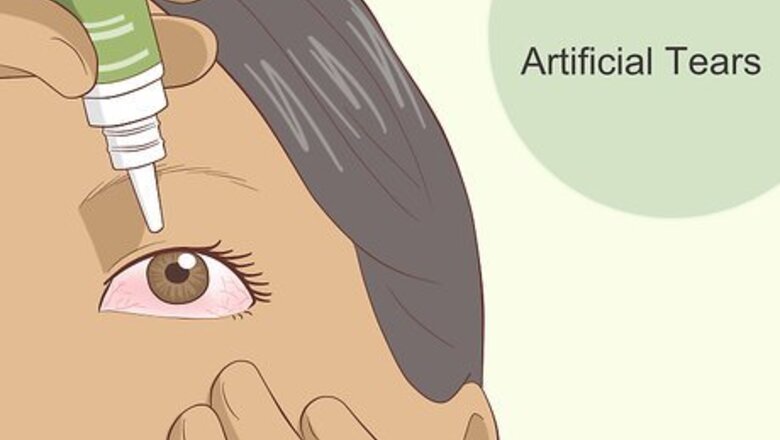
views
Using Medication to Treat Dry Eyes
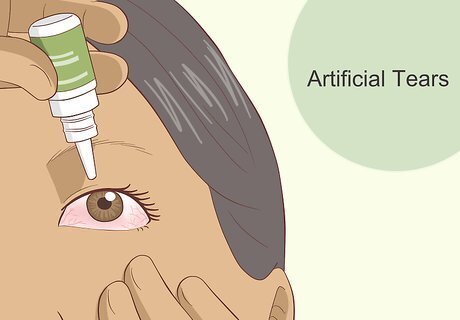
Use artificial tears to soothe itchy, red eyes. If your eyes get irritated temporarily from tiredness or a dry climate, lubricating eye drops can help provide relief. You can buy artificial tears over the counter at most pharmacies. Each brand of eye drop is different, so follow specific instructions that come with your medications. In most cases, you will use 1-2 drops in each eye no more than 4 times a day. If you have consistently dry eyes, look for preservative-free eye drops. Preservatives in eye drops can aggravate dry eyes if you continue to use them for prolonged periods. Eye drops that claim to provide redness relief are decongestants that can make dry eye worse but will make your eyes look whiter. Hexane-free castor oil eyedrops can also provide relief.
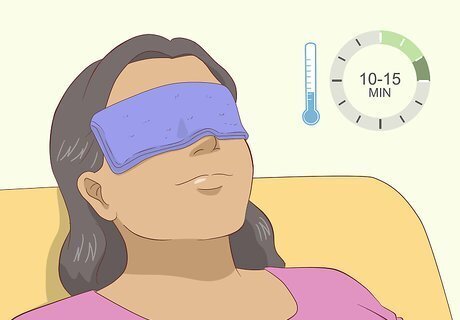
Place a cool compress over your eyes for mild symptoms. A cool compress can temporarily relieve mild dry eyes. Soak a washcloth in cool water and wring out any excess. Place the washcloth over your eyes for 10-15 minutes. A cool compress is a quick, easy way to effectively relieve dry eyes and you can make one at home for no cost.
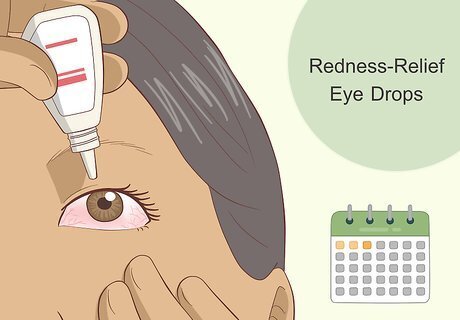
Try decongestants to relieve redness from allergies. Use redness-relief eye drops for 2-3 days maximum and follow the instructions that come with your medication to take the correct dosage. Decongestants are available in some over-the-counter eyedrops. Choose a decongestant with an antihistamine to relieve itchiness from allergies as well.
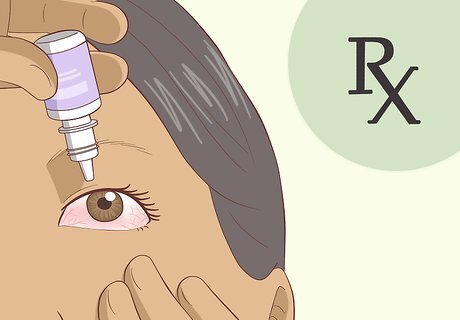
Ask your ophthalmologist about prescription eye drops. Over-the-counter medications can provide temporary relief, but if you continue to use them for days or weeks at a time, they can actually cause more irritation. If you find that over-the-counter medications aren't effective, you may need a prescription from your eye doctor. Prescription medications can include antihistamines, decongestants, mast cell stabilizers, NSAIDs, and steroids.
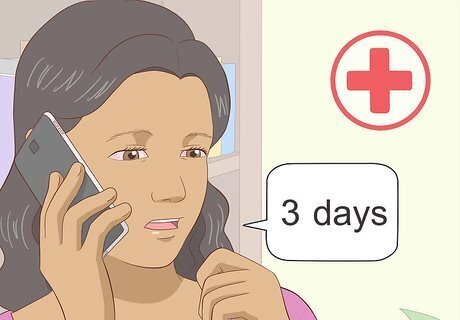
Make an appointment to see your eye doctor if your symptoms last 3 or more days. If you experience dry, burning, or itchy eyes for more than 3 days or so, make an appointment to see an ophthalmologist. Your eye doctor can make recommendations on what kind of medication you should take or changes you should make to your environment. An ophthalmologist can also prescribe medication if you need it.
Making Changes to Your Environment
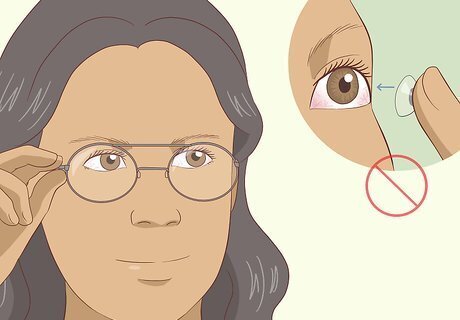
Wear glasses instead of contact lenses. Contact lenses can attract allergens and irritants when you take them out and put them in. Avoid wearing contact lenses until your symptoms have passed. If you are prone to eye irritation, try switching to daily contacts that you throw out after wearing. This prevents allergens from building up on the lenses. To protect your eyes from irritation from bright light, wear computer glasses when you’re in front of a screen and sunglasses when you’re outside.
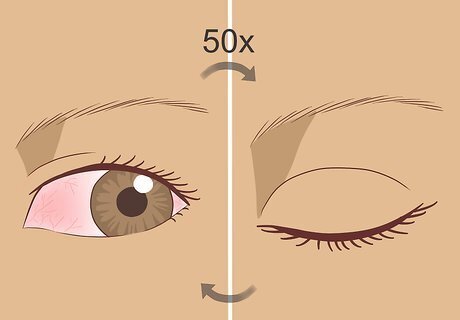
Blink often to help keep your eyes moist. Blinking spreads tears over the surface of your eyes to moisten them and wash out debris. If your eyes are dry or irritated, make a conscious effort to blink from time to time to help them feel better. Try setting aside 5 1-minute sessions each day for blinking. Aim to blink 50 times during each session, looking in different directions as you do so. Don’t squeeze your eyes shut—just close them lightly.
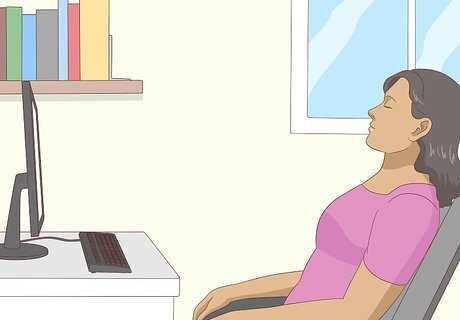
Rest your eyes if you spend a lot of time looking at screens. Take at least a 10-minute break from looking at computer or phone screens every hour. Also make sure your screen is 20 to 24 inches (51 to 61 cm) from your face. Adjust the screen settings so that the brightness is the same as your general workspace and the type is big enough to read comfortably. Try computer glasses if you can't avoid looking at a screen all day. Computer glasses can block out harmful blue light and can be worn over contact lenses.
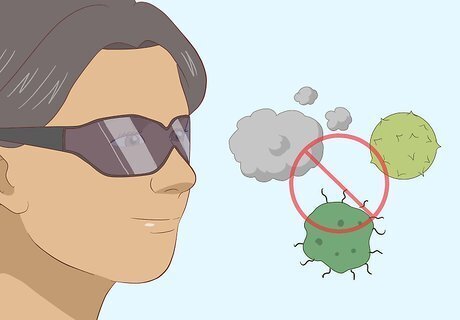
Avoid allergens as much as you can. Use a weather app to look for days with high pollen or mold counts. On those days, stay inside, and if it's warm outside, run an air conditioner to filter the air. Also avoid environments with smog, smoke, or pet dander if possible. If you go outside on high allergen count days, wear wraparound sunglasses to shield your eyes and drive with your windows rolled up. If you swim, wear goggles to avoid getting chlorinated water in your eyes. Take care to avoid getting too much water in your eyes in the shower as well, especially if your tap water is chlorinated.
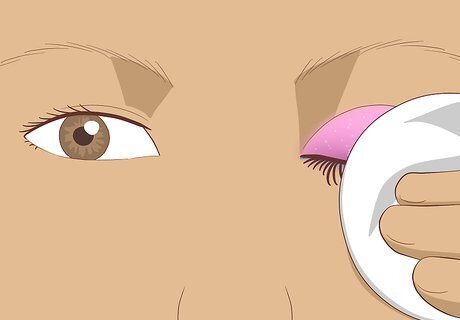
Take off your makeup every time you go to bed. Wearing makeup while you sleep, especially eye makeup, can increase the chance that irritants will get into your eyes. Before going to bed, wash your face with a gentle cleanser and remove any makeup. If you wear mascara, you can remove it with a gentle, natural product such as coconut or jojoba oil.
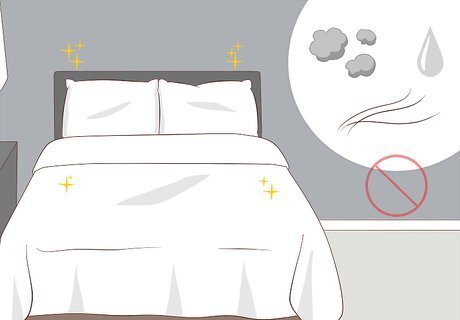
Keep your bedclothes clean. Dust, oils, and hair and skincare products can build up on your sheets and pillowcases over time, possibly irritating your eyes. Change or wash your sheets and pillowcases at least once a week to protect your eyes. If you have sensitive eyes and skin, use laundry detergent that’s free from dyes and perfumes.
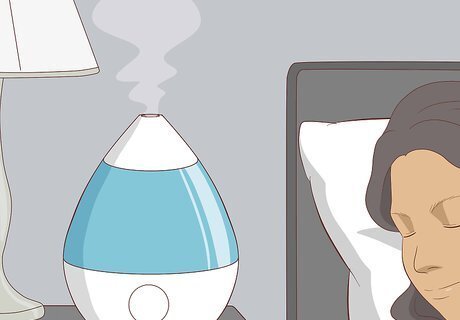
Run a humidifier in your room at night. Dry air can cause your eyes to become even more irritated. A humidifier can put more moisture in the air and causes your own natural tears to evaporate more slowly, keeping your eyes lubricated. Air conditioners and heaters can take moisture out of the air. Run a humidifier to add moisture back into the air.










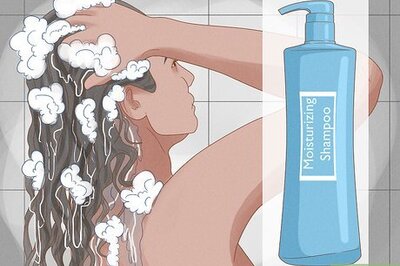








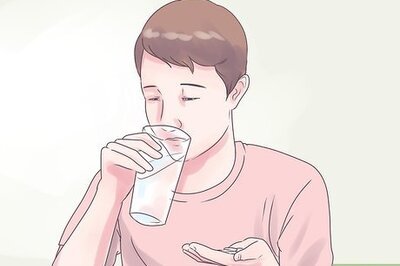
Comments
0 comment